I wrote an algorithm for finding a key in sorted array of infinite integers.
findKey(int k, int start, int end)
int mid = (start + end)/2
if (k < array[mid])
findKey(k, start, mid)
else if (k > array[mid])
findKey(k, mid+1, end)
else
return mid
I want to know the time complexity of this algorithm. Is it o(logn)? I'm really confused, can anyone explain? Also let me know if there are any flaws in here. Thanks in advance.

